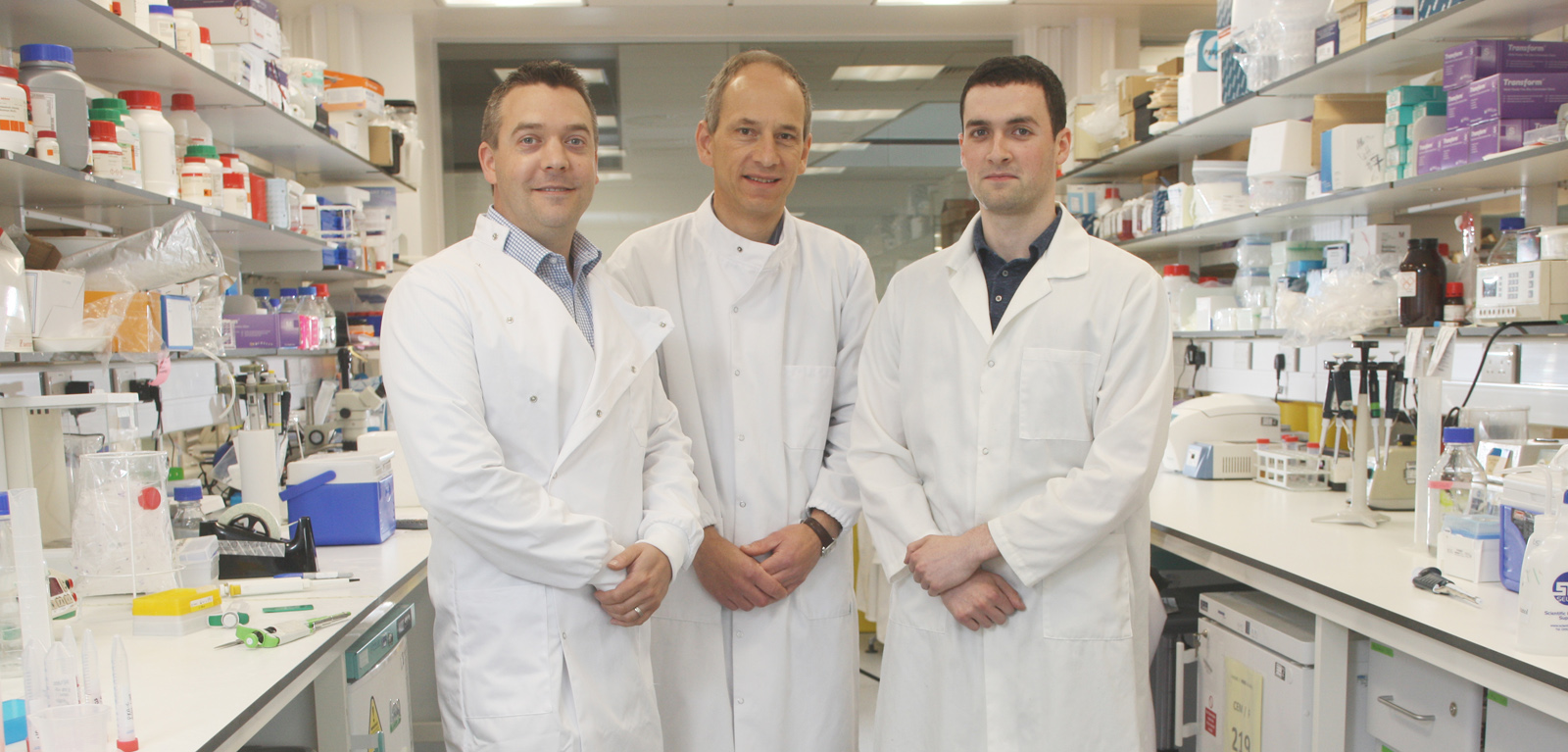Scientists from Queen’s University to research abnormal heart rhythms
Scientists at Queen’s University have been awarded a prestigious grant by British Heart Foundation Northern Ireland (BHF NI) to investigate how heart cells change in people affected by an abnormal heart rhythm.

The local heart charity has given £100,000 to Dr David Simpson and his PhD student Oisín Cappa at the Wellcome-Wolfson Institute for Experimental Medicine to investigate how heart cells change in people living with atrial fibrillation (AF).
AF is a common abnormal heart rhythm that happens when electrical impulses fire off from different places in the top chambers of the heart in a disorganised way. This causes the chambers to twitch, and is felt as an irregular heartbeat or pulse. AF affects more than 39,000 people in Northern Ireland and is a major cause of stroke.
The researchers will use a new technique called ‘single-cell RNA-Sequencing’ to study thousands of individual cells from the hearts of people with AF and those without the condition. This will reveal in greater detail than ever before how heart cells work and how they are altered in patients with AF. Their hope is that this knowledge will guide development of ways to treat or even prevent the condition in the future.
Dr David Simpson said: “We’re delighted to receive the grant from British Heart Foundation Northern Ireland for this important piece of research. We will be using new technology that will allow us to look at individual cells in the human heart and measure precisely how these cells change.
“AF often involves the formation of extra connective tissue, a process known as fibrosis. The aim of this project is to inform the development of interventions to slow or prevent AF by learning more about the cells that cause fibrosis. The donation of biopsies from patients with and without AF will enable us to carry out the work.
“If we can discover what is happening to the heart cells in people with AF at the next stage we can design new drugs and treatments for the condition.”
Head of BHF NI Fearghal McKinney said: “Around 39,000 people in Northern Ireland have been diagnosed with AF and it is likely that there are thousands more living with the condition but are undiagnosed
“AF can increase the risk of a blood clot forming inside the heart. If the clot travels out of the heart and into the blood vessels of the brain, it can cause a stroke. AF increases the risk of a stroke by up to five times so it is vital we fund more research into the condition and help save local lives.”
BHF NI has invested almost £4m in research at Queen’s University across multiple research projects, including studying how the heart is unable to pump blood around the body properly after a heart attack. The BHF across the UK is the largest independent funder of research into heart and circulatory diseases and aims to fund £100 million pounds of medical research each year.
Science funded by the BHF has contributed to advances in pacemakers, portable defibrillators, heart transplantation, congenital heart disease and the development of statins.
Media
Media enquiries to comms.officer@qub.ac.uk or +44 (0) 28 9097 5292.